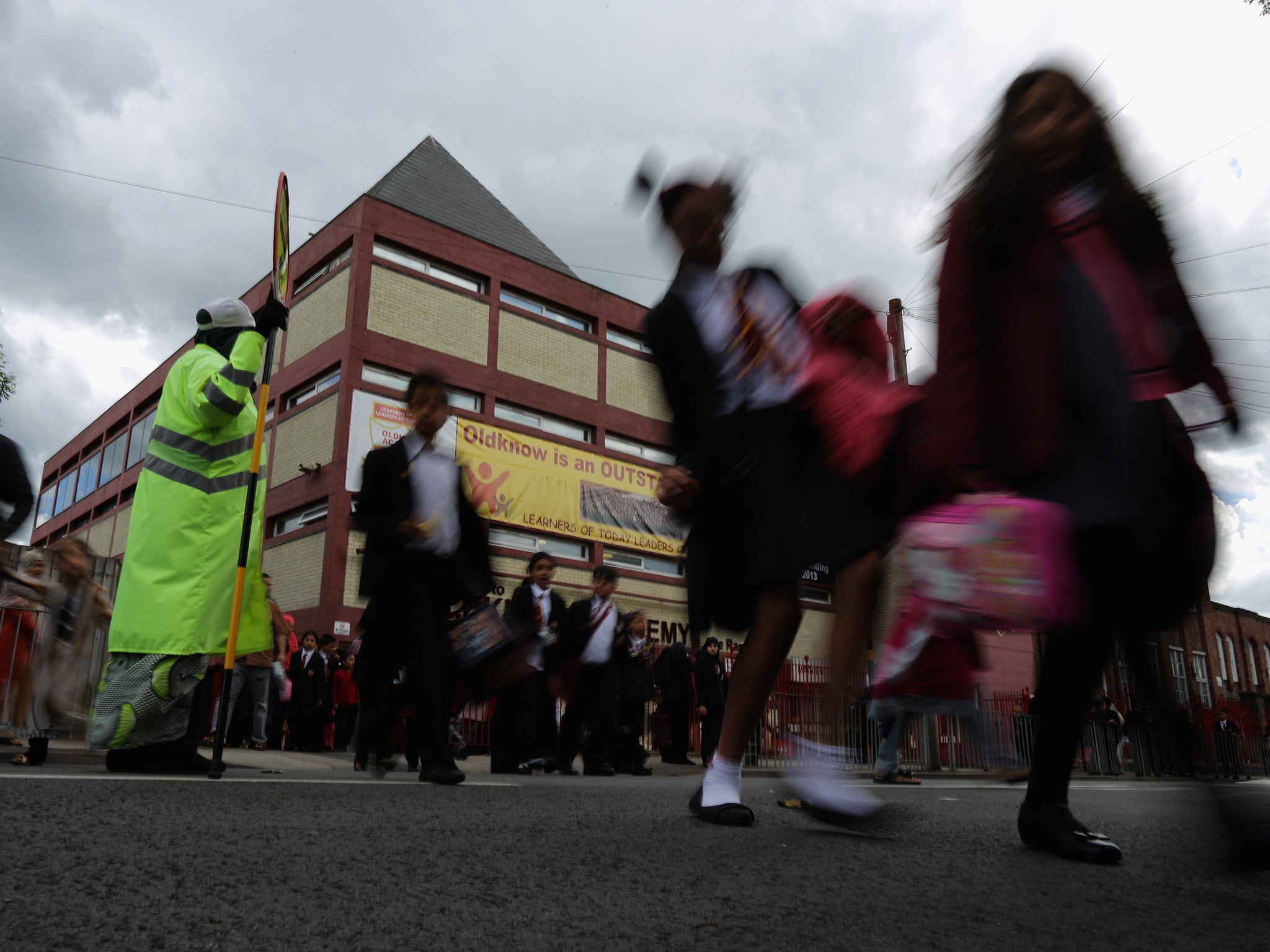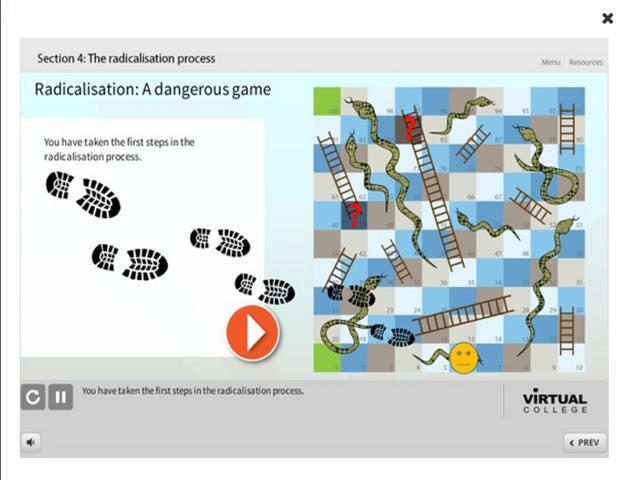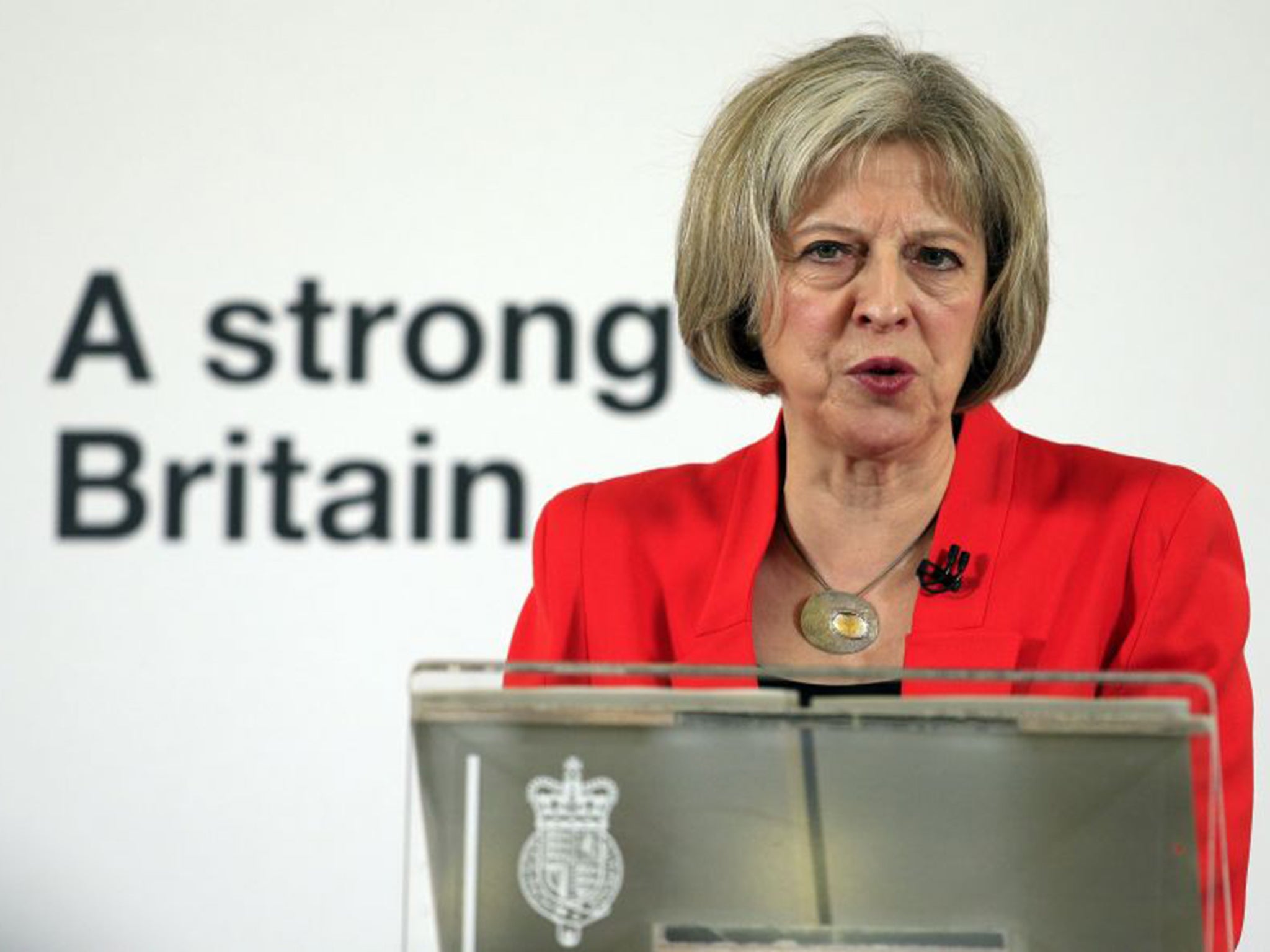More than 500,000 public sector workers put through Prevent counter-terror training in bid to spot extremism
Exclusive: Training courses criticised as 'inadequate' while the strategy has been described as divisive

More than half a million nurses, teachers, childminders and other frontline public sector workers have been put through a mass counter-terrorism training programme to help them spot and report potential extremists in their workplaces.
The Home Office has confirmed that of the 550,000 now trained in the controversial Prevent strategy, at least 150,000 are public-facing NHS staff, such as doctors and nurses.
They have all completed various online or classroom exercises to comply with a statutory Prevent duty that was forced on a wide range of public authorities by Theresa May as Home Secretary last year.
Aimed mainly at tackling Islamist extremists and far right white supremacists, it is one of the biggest counter-terror awareness programmes ever undertaken by the UK Government.
Some in the Muslim community and beyond feel Prevent is divisive; it creates a “climate of suspicion” and is an attempt to create a huge network of spies.
The training courses themselves, particularly those online, are also being criticised as “inadequate” and an exercise in box ticking that is not being taken seriously enough by attendees.
Under the Prevent strand of the Government’s counter-terror strategy, Contest, extremism is defined as “vocal or active opposition to fundamental British values, including democracy, the rule of law, individual liberty and mutual respect and tolerance of different faiths and beliefs”.
Anyone who “calls for the death of members of our armed forces” is also an extremist, according to the policy.

The Prevent duty requires a large range of public sector workers to be trained and also includes college lecturers, youth and social workers, probation officers and childcare providers.
But many Prevent trainees have simply clicked through online tutorials recommended by a Home Office catalogue.
Although most of the online courses are free and take about an hour to complete, one provider charges up to £30 a head for a module that uses a snakes and ladders game to teach people about paths to radicalisation.
Another provider listed on the Government’s Gov.uk website charges safeguarding officers in higher education £500 a head for a two-day classroom workshop.
Another course teaches people how to spot far right extremism by training social workers and police and probation officers for signs of anti-Semitism and Islamophobia.
Under the programme, people are taught how to spot the signs that someone maybe becoming radicalised.
These might be “reports of unusual behaviour, friendships or actions and request for assistance”, according to NHS documents.
Other signs could be “patients or staff accessing extremist material online”, or “artwork or literature promoting violent extremist messages or images”.
The Government wants to teach staff to contact their authority’s designated “Prevent lead” when they have concerns about an individual, such as a student or even a patient.
The Prevent lead will alert the police whenever the risk is deemed immediate or substantiated.
Prevent was introduced by the last Labour government, but it was transformed under Ms May. She widened its scope to include non-violent extremism in 2011 when she also encouraged many authorities to start training programmes.
Between 2011 and 2015, some 300,000 public sectors had received a form of training.
But The Independent has discovered that figure has now almost doubled as a result of the Counter-Terrorism and Security Act, which Ms May drove through last year.

The Home Office says that as a result of Ms May’s work, 1,000 people have been referred to the Government’s Channel initiative which tries to de-radicalise individuals.
Earlier this month, the Government’s education watchdog Ofsted warned that some schools and colleges were being too slow in complying with the Prevent duty.
But the Muslim Council of Britain, which has long opposed Prevent, said the mass training of public sector workers risked being “counterproductive”.
A spokesman said: “We need to be vigilant given the real threat of terrorism, and we therefore support effective measures to identify and report terrorist activity.
“However, we are not convinced about the effectiveness of a programme requiring hundreds of thousands of people to look for signs of what they perceive to be behaviour that potentially leads to terrorism. We are instead likely to see many false flags in an inconsistent approach that is applied in a discriminatory way.
“This runs the risk of being – as the parliamentary Joint Committee on Human Rights said on Friday – counterproductive to our goal of a safe and secure nation.”
The campaign group Students Not Suspects, who say the Prevent strategy unfairly targets black and Muslim students, said in a YouTube video in April: “The Prevent duty under the Counter-Terrorism and Security Act forces colleges and universities to spy on students. They'll say this is to safeguard students but in reality it is creating a climate of suspicion around students' political and religious views.
“Prevent is silencing students, promoting a culture of surveillance and self-censorship and undermining our universities and colleges as spaces for free and rigorous debate.”
Jonathan Russell, head of policy at the Quilliam Foundation, a counter-extremism think tank, said: “The training is currently inadequate. While a lot of people may have been trained, and that is certainly better than no training, we can’t say that all the people who have been trained are perfectly suited to doing this job now.
“A lot of people in the past have had a gut feeling that something might be off, and that someone might be on the pathway towards extremism but didn’t quite know what to do.
“There were an awful lot of spurious calls to the police.”
He said the plan was to show people there were other options than simply dialling 999.
He added: “The aim was to raise awareness so you can spot the difference between someone who is just religiously conservative and people who are saying things that might endorse terrorism or promote views that make terrorism more likely.
“Anecdotally, my sense from teachers is that they understand that it’s part of their general safeguarding remit, and they don’t resent that.
“Initially there was a bit of resentment, saying ‘I’m not a spook, this isn’t my job’.
“The anecdotal response from teachers at the moment is: ‘Yeah, I know it’s my job to do this, but I’m not really confident in doing it, and the training was patronising and unengaging.’
“Having looked at some of the training products myself, they’re certainly not as good as the ones available that NGOs produce or the private sector has produced to do the same sort of things.
“It’s delivered free. I would have thought the Government would have compromised on quality to keep costs down, because they have to deliver it so widely.”
A Home Office spokesman said: “We have seen all too tragically the devastating impact radicalisation can have on individuals, families and our communities. Protecting those who are vulnerable and at risk is a job for all of us.
"Prevent is working and we now have more than 550,000 frontline public sector workers trained to recognise the signs of radicalisation so that they know what steps to take.”
